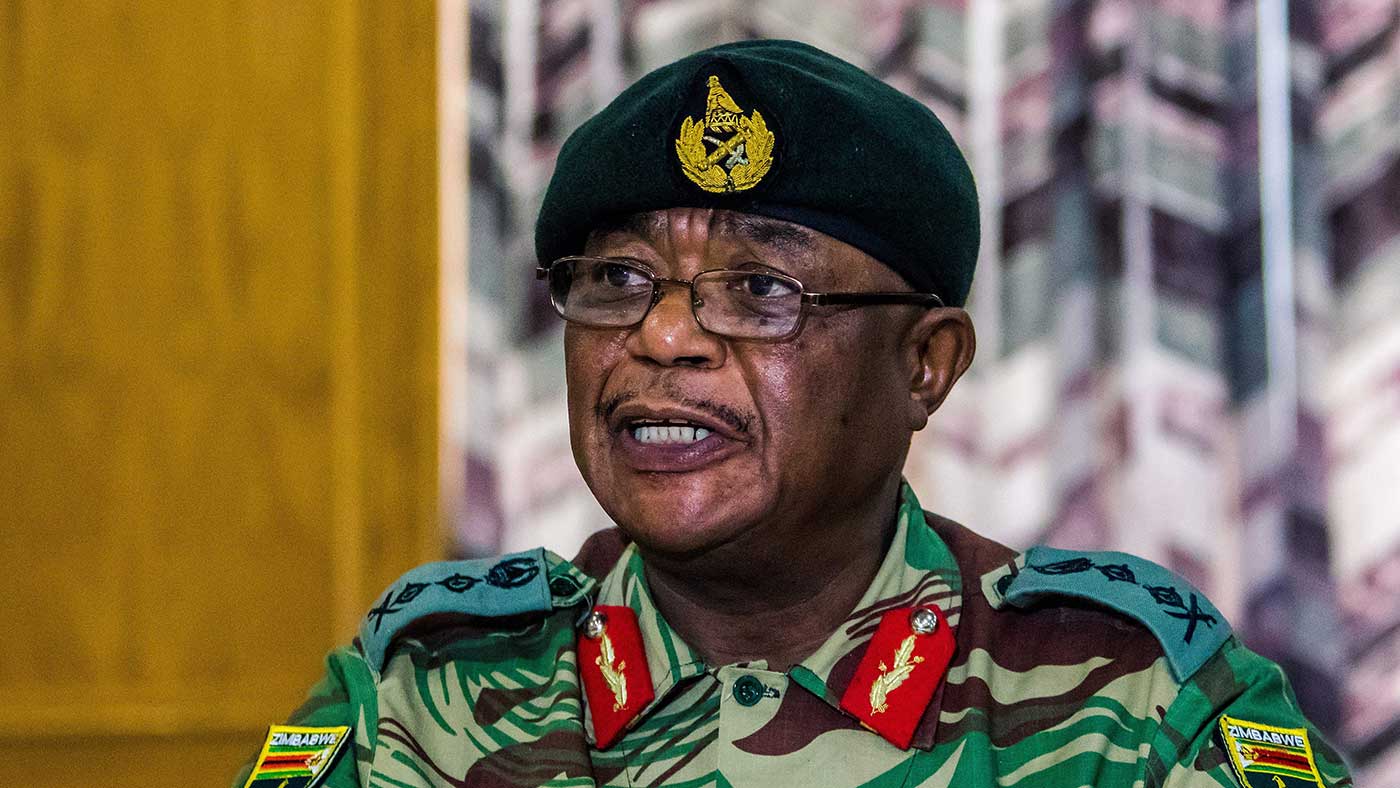Zimbabwe coup: Robert Mugabe ‘clinging to power’
As Zimbabweans await news of their President, questions have been raised about China’s role in the military takeover

A free daily email with the biggest news stories of the day – and the best features from TheWeek.com
You are now subscribed
Your newsletter sign-up was successful
Robert Mugabe is reportedly refusing to step down as President of Zimbabwe, insisting he remains the only “legitimate head of state” despite a military takeover of his country.
State-run media have released photographs of Mugabe meeting the general believed to have led Wednesday’s coup, while Mugabe’s family and several senior supporters remain under house arrest.
Mugabe has “rejected a proposal under which he would step down allowing Emmerson Mnangagwa … to take over temporarily until elections due to be held next year”, The Independent reports.
The Week
Escape your echo chamber. Get the facts behind the news, plus analysis from multiple perspectives.

Sign up for The Week's Free Newsletters
From our morning news briefing to a weekly Good News Newsletter, get the best of The Week delivered directly to your inbox.
From our morning news briefing to a weekly Good News Newsletter, get the best of The Week delivered directly to your inbox.
Questions about the genesis of the takeover have emerged after it was reported that the head of the Zimbabwe Defence Forces, General Constantino Guveya Chiwenga, met senior Chinese officials in Beijing last week.
“Chiwenga may have travelled to Beijing to warn China’s leadership of the impending move against Mugabe, or perhaps even to seek its blessing or help,” The Guardian suggests.
The Washington Post says “China’s links to Zimbabwe are long-standing”, dating back to when “then-rebel leader Mugabe turned to Beijing for support after his attempts to get Soviet backing for his Zimbabwe African National Union militant group failed”.
A free daily email with the biggest news stories of the day – and the best features from TheWeek.com
-
 The environmental cost of GLP-1s
The environmental cost of GLP-1sThe explainer Producing the drugs is a dirty process
-
 Greenland’s capital becomes ground zero for the country’s diplomatic straits
Greenland’s capital becomes ground zero for the country’s diplomatic straitsIN THE SPOTLIGHT A flurry of new consular activity in Nuuk shows how important Greenland has become to Europeans’ anxiety about American imperialism
-
 ‘This is something that happens all too often’
‘This is something that happens all too often’Instant Opinion Opinion, comment and editorials of the day
-
 Epstein files topple law CEO, roil UK government
Epstein files topple law CEO, roil UK governmentSpeed Read Peter Mandelson, Britain’s former ambassador to the US, is caught up in the scandal
-
 Iran and US prepare to meet after skirmishes
Iran and US prepare to meet after skirmishesSpeed Read The incident comes amid heightened tensions in the Middle East
-
 Israel retrieves final hostage’s body from Gaza
Israel retrieves final hostage’s body from GazaSpeed Read The 24-year-old police officer was killed during the initial Hamas attack
-
 China’s Xi targets top general in growing purge
China’s Xi targets top general in growing purgeSpeed Read Zhang Youxia is being investigated over ‘grave violations’ of the law
-
 Panama and Canada are negotiating over a crucial copper mine
Panama and Canada are negotiating over a crucial copper mineIn the Spotlight Panama is set to make a final decision on the mine this summer
-
 Why Greenland’s natural resources are nearly impossible to mine
Why Greenland’s natural resources are nearly impossible to mineThe Explainer The country’s natural landscape makes the task extremely difficult
-
 Iran cuts internet as protests escalate
Iran cuts internet as protests escalateSpeed Reada Government buildings across the country have been set on fire
-
 US nabs ‘shadow’ tanker claimed by Russia
US nabs ‘shadow’ tanker claimed by RussiaSpeed Read The ship was one of two vessels seized by the US military